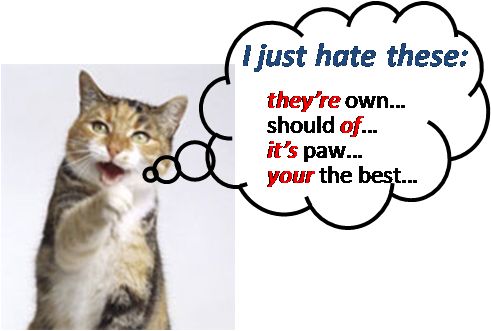Several years ago, an article in an airline magazine, “Nouns Gone Bad,” really hit home with us.
It discussed the phenomenon of using nouns as verbs, and the growing prevalence of this practice.
A recent tweet (on Twitter) reminded us of this ever-growing trend …
“There is a poor grammar jesus bumper sticker collection on a van. I want to at least ‘Sharpie‘ it so it makes sense.”
You may know that a Sharpie® is a marker made by Sanford. Many professional athletes (and other celebs) use these markers for signing autographs. The pens have many other uses, and we confess to having what must be one of the largest collections of Sharpie® pens around (all colors, widths, point-types, and styles – literally, in buckets in the office). But we digress …
There is an interesting paper called “THE ENVIRONMENTAL STYLE” that was written in 2005 by R.P. Detwiler, NASA Office of General Counsel, in which this trend is addressed. Detwiler uses the examples: partner, team, dialogue, and task.
Have you heard (or used) these nouns as verbs? Maybe, in instances like (yes, we mean “like,” not “such as,” here):
- Let’s partner on this venture.
- How about we team up to find the solution?
- We can dialogue about that topic.
- My boss likes to task us with many jobs.
There are many other examples. There are even uses that are not primarily business-related:
- Do you know anyone who likes to go antiquing?
- The cops Tasered a stuffed animal the other day. (see the story)
- That recent study really impacted our lives.
- Did he transition from runner to cyclist?
- Will picnicked during the soccer game.
These days, use of the Internet provides us with the opportunity to perpetuate this bent:
- Ooh, let’s Google that …
So, now we add “Sharpie” to our list of nouns gone bad.
What are your offenders?
Be sure to see our related posts:




















You must be logged in to post a comment.